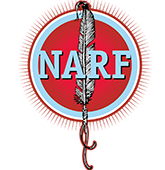Fifth Circuit to Rehear Indian Child Welfare Act Challenge
Today, the United States Court of Appeals for the Fifth Circuit issued an order directing a challenge to the Indian Child Welfare Act (ICWA) to be reheard en banc — before the entire Fifth Circuit. As previously reported, a three-judge panel of the Fifth Circuit had held ICWA Constitutional in August, finding it was not a race-based statute that would violate the … Read more
